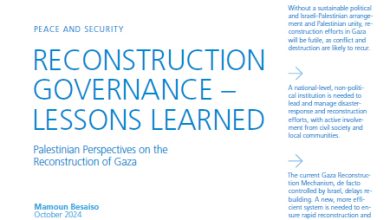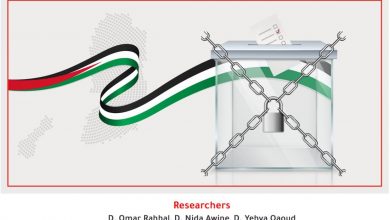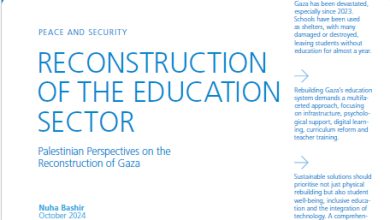Yemeni Initiative Between Platform and Execution: A Reading in the Political Positions and Possible Tools


Pal- think for strategic studies has organized a think tank session on the “Yemen Initiative between platform and implementation” as a trial for foreseeing possible solutions of current national crisis. Dr. Ghazy Hamad , spokesperson of former Hamas government and Yehya Rabah, former PA ambassador to Yemen have presented their point of views . Thinkers and politicians have participated in the dialogue.
The session was moderated by Mr. Esam Yonis, direct of El-Mezan Center for human rights who began the meeting with talking about the different dimensions of Yemen Initiative with mentioning of important conditions in this Initiative. Yonus also talked about the impact of variance in explaining the initiative conditions by Hamas and Fateh.
Mr. Yehya Rabah talked about eligibility of Yemen to present such an initiative because of its experience in internal conflicts, neutral relation with Hamas and Fateh and closeness to Palestinian people. Those factors have allowed Yemen to play this role in trying to heal the current crisis.
Rabah also considered the acceptance of dialogue as an important achievement for the Yemen initiative especially among accompanied conditions like siege and invasion, failure of Mecca agreement. He also considered the vague concepts which are used in forming the initiative was one of traditional literature of Palestinian national work. At the same time, Rabah argued that there are many dimensions of the issue which can’t be ignored. One of those dimensions is that the President cannot legitimize what he considers as a coup over the Palestinian Government. At the end of his paper, Rabah expected a national dialogue as a complement for Sanaa Agreement in close future.
Dr. Ghazi Hamad’s presentation focused on the terms of agreement and causes that prevented instant agreement between Fateh and Hamas. The main point in the dialogue crisis was about “return of conditions to what it was before events of June”. This statement and others opened a room for interpretation due to absence of good wording. Dr. Hamad summarized the Initiative crisis in two main points: absence of good wording and absence of practical steps for implementation of the terms of agreements.
Ghazi Hamad also pointed out that Hamas has agreed to consider the agreement as a framework for implementation, but felt the need to have mechanisms to ensure international cooperation with the Government of Unity which requires serious Palestinian dialogue to prevent differences again.
He stressed that there is no scope for a solution except dialogue. This calls accelerating dialogue which can eventually prevent complexity of internal conditions. Hamad also felt that the dialogue between Fatah and Hamas must be strategic and discuss ways to deal with the occupation which invest the current state of division.
Attendance addressed four factors for success of initiative; will, mechanisms, internal and regional climate, and the cultural legacies. It was stressed that the circumstances are favorable but mechanisms and instruments are missing to collect the political extremes, in a reference to the need of instant implementation of the Agreement. On the other hand, some expressed some reservations on the urgency, alluding to the need of caution to avoid what happened in Mecca Agreement.
Attendance also pointed out that there was a real problem concerning the control and the adoption of quotas as a way of governance rather than faith in the political partnership that prevent exclusivity of authority, especially that of the joint working of previous initiatives is that they contradicted the total interests of the two parties.
At the end, the audience revealed the following recommendations:
· Necessity of initiating practical steps rather than continuous goodwill statements.
· Forming technical specified committees for treating subjects of difference like security systems and Palestinian political system.
· Using popular approval and popular pressure to influence any agreement between the two movements; Hamas and Fateh.
· Stressing on concepts of political partnership instead of quotas and exclusivity Governing.
· Thinking of strategic dialogue rather than temporary dialogue which don’t support future even it resolves current problems.
Finally, Mr. Omar Sha’ban commented on the notes of the audience and mentioned that Pal- think began a series of dialogues and seminars which are designed to bridge the gap in viewpoints. He also expressed steadiness of PalThink to initiate practical steps toward reconciliation between two movements.
Day: 7/4/2008
Place: Pal think Center.
Participants: 21 Participants.




